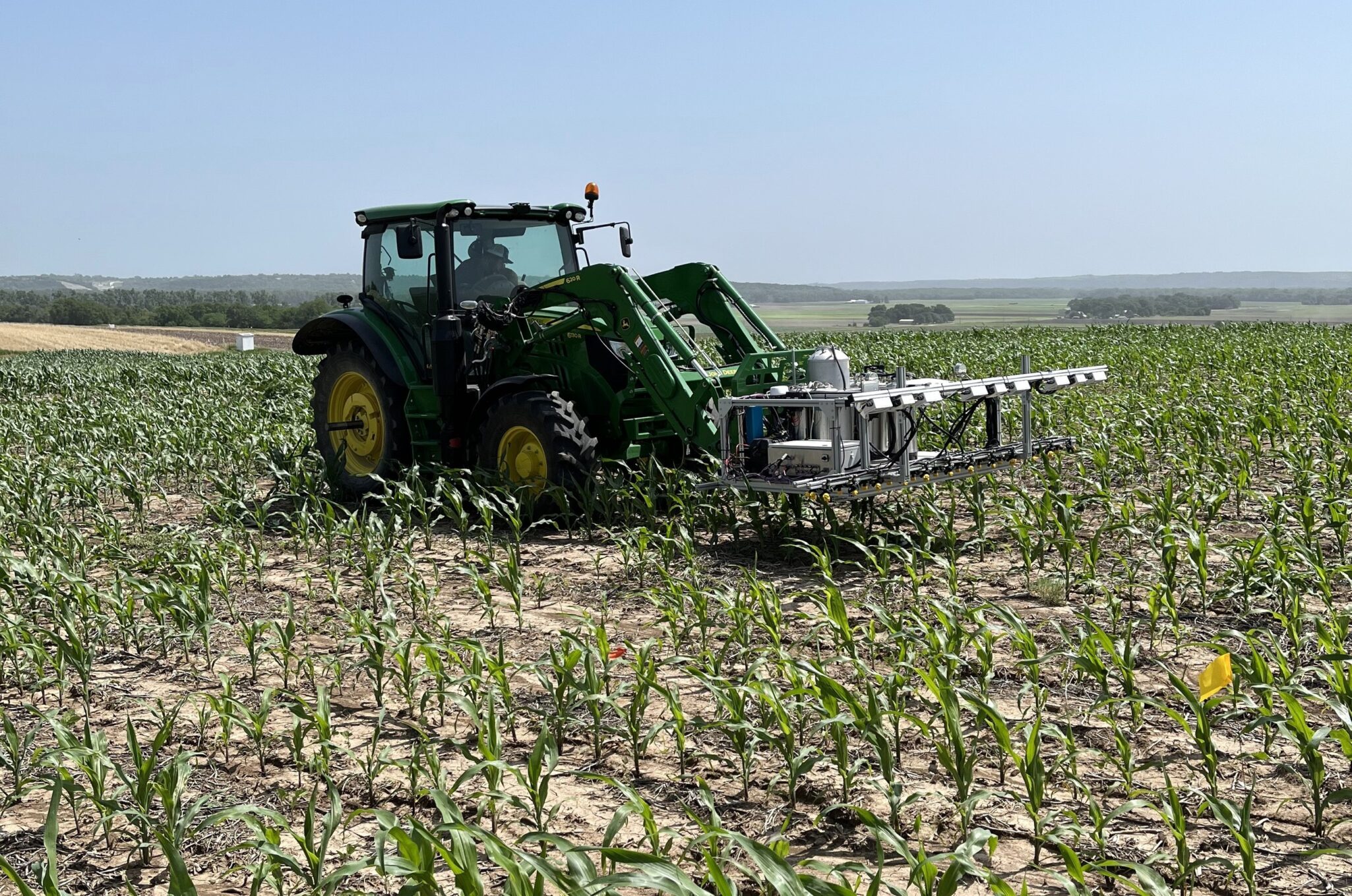Key Takeaways:
- Research published by the Weed Science Society of America shows AI smart sprayers can reduce foliar herbicide use.
- Field trials in Kansas and Illinois demonstrated lower herbicide costs versus broadcast spraying.
- AI-enabled systems selectively spray weeds within and between crop rows.
- Researchers stress that smart sprayers must be combined with integrated weed management.
- The findings are directly relevant for Midwest corn and soybean producers.
Weed Science Society of America Research Evaluates AI Smart Sprayers
A peer-reviewed study published in Weed Science, a journal of the Weed Science Society of America (WSSA), reports that smart sprayers equipped with artificial intelligence can significantly reduce foliar herbicide use and associated costs in corn and soybean production systems.
The research analyzed field trials conducted near Manhattan, Kansas, during the 2022 and 2023 growing seasons and near Seymour, Illinois, in 2023. According to the Weed Science Society of America publication, targeted spraying using AI technologies consistently required less herbicide than conventional broadcast applications.
“This research demonstrated that significant herbicide use reductions are possible with smart sprayers compared with broadcast applications,” said Anita Dille, Ph.D., corresponding author of the study, member scientist of the Weed Science Society of America, and professor of agronomy at Kansas State University.
Weed Science Society of America Study Design and Field Trials
The researchers evaluated a ONE SMART SPRAY system using commercial-grade hardware adapted for research plots. The sprayer was mounted on a tractor and equipped with two separate booms: one for spot spraying and another for broadcast applications.
Cameras mounted across the booms used advanced imaging to distinguish weeds from row crops. When weeds were detected, the system activated individual nozzles to apply herbicide only where vegetation was present. For burndown and pre-emergence applications, infrared and near-infrared sensors were used instead of AI-based detection.
“The ONE SMART SPRAY sprayer demonstrated the potential to reduce herbicide input costs without compromising weed control,” Dille noted in the WSSA study.
Integrated Weed Management Still Required
Technology Must Complement Agronomic Practices
Researchers emphasized that AI-enabled smart sprayers are not a standalone solution. The WSSA study highlights the continued importance of integrated weed management practices, including crop rotation, residual herbicides, multiple effective sites of action, and two-pass herbicide programs.
“Broadcast applications of residual herbicides and multiple passes of targeted foliar herbicides are still important when using this technology,” Dille said. She added that future two-boom, two-tank smart sprayers could allow simultaneous applications, further improving efficiency.
The study also noted that even growers without AI-equipped sprayers can benefit from similar herbicide programs, such as combining soil-applied residual products at planting with targeted post-emergence applications.
Implications for Corn and Soybean Producers
The Weed Science Society of America findings suggest that AI smart sprayers can help corn and soybean producers reduce chemical inputs and control costs while maintaining effective weed control. However, the research reinforces that these technologies are most effective when integrated into diversified weed management systems rather than replacing established agronomic practices.
Read the entire research here.


